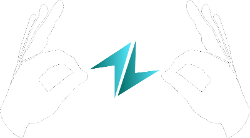Picture this, you walk into a cozy café, the smell of espresso in the air. The barista greets you with a warm smile and a quick flick of their hands in ASL (American Sign Language): GOOD MORNING!. You’ve just walked into Mozzeria, one of the nation’s most well-known Deaf-owned restaurants.
Founded by Melody and Russell Stein, both Deaf, Mozzeria began as a dream: to create a space where Deaf culture, language, and food could come together. Today, it’s not just a restaurant, it’s a symbol of empowerment, accessibility, and community.
Mozzeria’s story is one of many showing that Deaf people are not only thriving employees, they’re trailblazing entrepreneurs.

A Brief History of Deaf Employment
Before the Americans with Disabilities Act (ADA) was passed in 1990, many Deaf Americans faced discrimination and limited access to work opportunities.
Deaf schools like Gallaudet University and state institutions provided early vocational training in fields like printing, woodworking, and teaching. These schools were more than classrooms, they were the foundation of Deaf culture, language, and leadership.
Over time, advocacy organizations such as the National Association of the Deaf (NAD) fought for Deaf rights and pushed for legislation requiring interpreters and accessible workplaces.

Accessibility and Employment Rights
The ADA made it illegal to discriminate against Deaf people in the workplace. Employers are now required to provide reasonable accommodations, such as interpreters, captioning, and accessible technology.
Still, challenges remain. According to the U.S. Bureau of Labor Statistics, the employment rate for Deaf and hard-of-hearing adults (about 54%) still lags behind that of hearing adults (76%).
Visit ADA.gov to learn about your employment rights.
Deaf Entrepreneurs Changing the Game
From coffee shops to tech startups to media companies, Deaf-owned businesses are thriving. Each one contributes to a stronger, more visible Deaf community.

Here are a few inspiring examples:
Melody and Russell Stein – Mozzeria (San Francisco, CA)
An all-Deaf staff restaurant known for wood-fired Neapolitan pizza. Their success led to a second location in Washington, D.C. that was funded in part by the Communication Service for the Deaf (CSD) Social Venture Fund.
Sean Forbes – DPAN.TV (Detroit, MI)
A Deaf rapper and co-founder of DPAN.TV (The Deaf Professional Arts Network), Sean’s platform brings music and entertainment in ASL to Deaf audiences worldwide.
Renca Dunn – ASL Content Creator (Seattle, WA)
Renca uses social media to educate, entertain, and empower through Deaf storytelling and accessibility advocacy.
Barriers That Still Exist
Despite progress, barriers persist:
- Some workplaces lack interpreters or captioning.
- Interviews can be biased if interpreters aren’t provided.
- Misconceptions about Deaf employees’ abilities remain.
The Deaf community reframes these challenges through the concept of Deaf Gain — the idea that Deafness is not a loss but an asset, offering new perspectives and unique communication skills.

How Hearing People Can Be Better Allies
You don’t have to be Deaf to support the Deaf community!
Here are ways to become a stronger ally:
- Learn ASL and use it to communicate respectfully.
- Support Deaf-owned businesses and share their stories online.
- Advocate for access in your school, workplace, or community.
Find Deaf-owned shops, creators, and restaurants at the CSD Venture Fund Deaf-Owned Business Directory.
Modern Deaf Employment: New Paths for a New Generation
Technology and education have opened new doors. Deaf professionals now work in STEM, media, interpreting, education, and even government leadership. Social media has amplified Deaf voices, creating representation and awareness like never before.
As more hearing allies learn ASL, the bridge between communities grows stronger and the future of Deaf employment looks brighter than ever.
FAQ Section
What are common careers for Deaf people?
Deaf professionals thrive in fields like education, interpreting, tech, arts, and customer service. Some also work in healthcare, design, or entrepreneurship. Career diversity continues to grow as accessibility improves.
How do Deaf-owned businesses promote inclusion?
They offer communication-rich environments where ASL is celebrated and accessibility is built into every interaction. These spaces empower Deaf workers while educating hearing customers about Deaf culture.
What rights protect Deaf employees under the ADA?
The ADA ensures that Deaf employees receive equal access and opportunity in hiring, communication, and workplace participation. Employers must provide reasonable accommodations such as interpreters, captioning, or visual alerts.
How can I support Deaf-owned businesses as a hearing person?
Start by learning about Deaf culture, using basic ASL, and intentionally choosing Deaf-owned companies. Sharing their stories online and recommending them to friends also helps increase visibility and community support.




